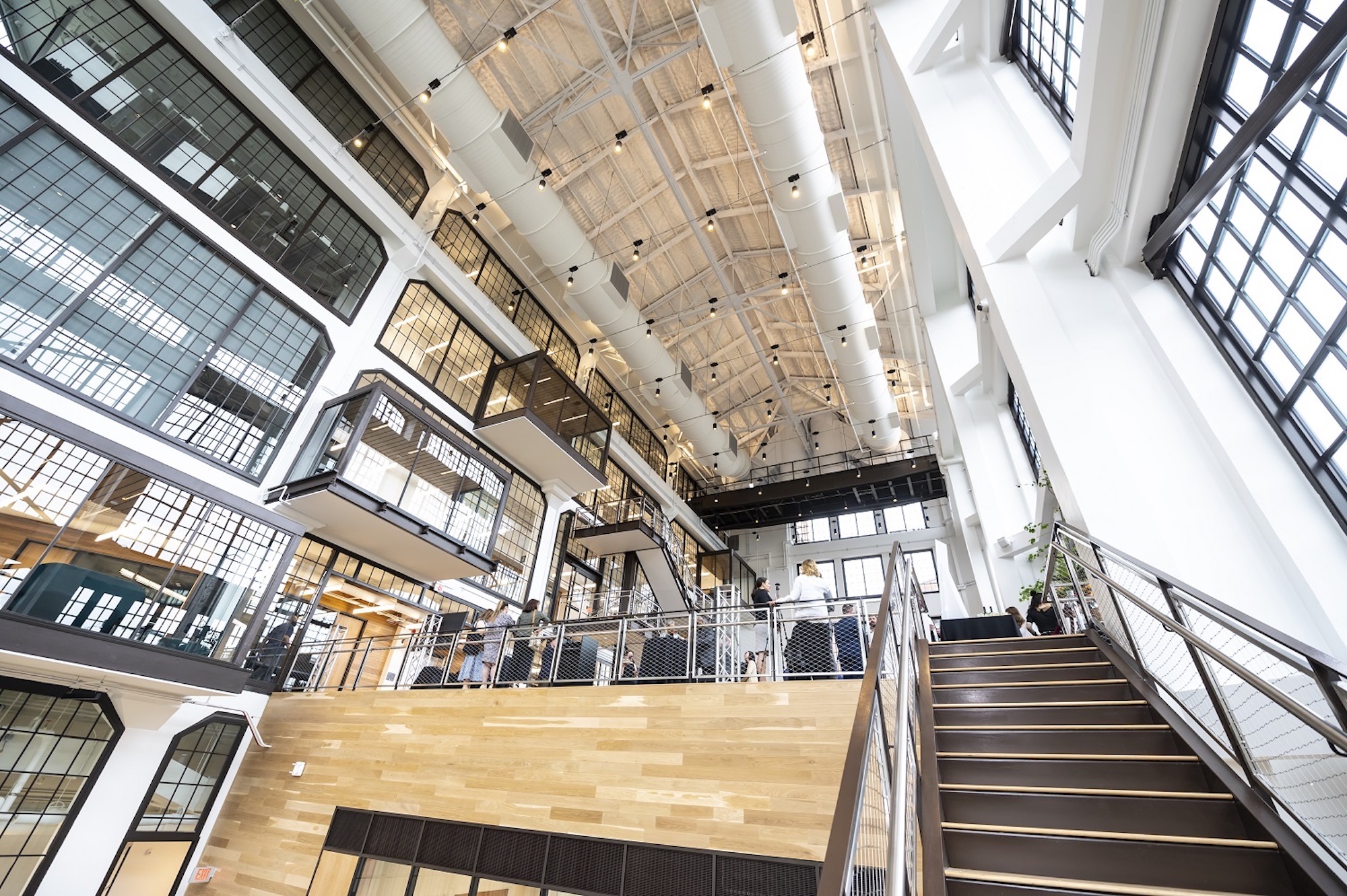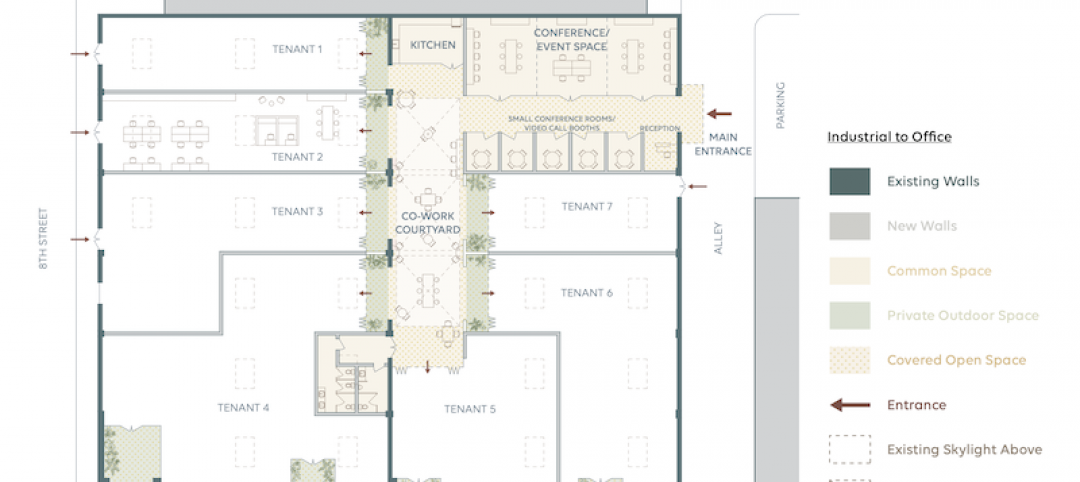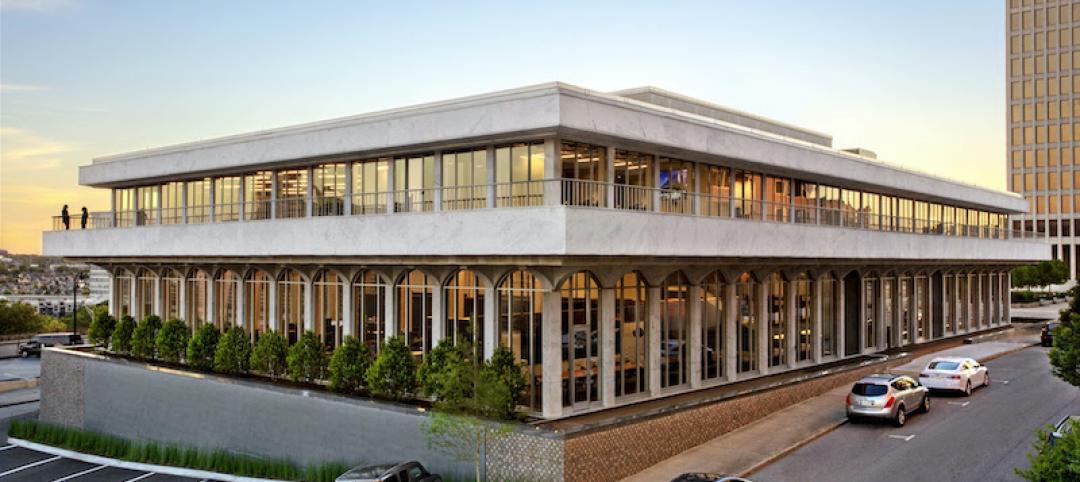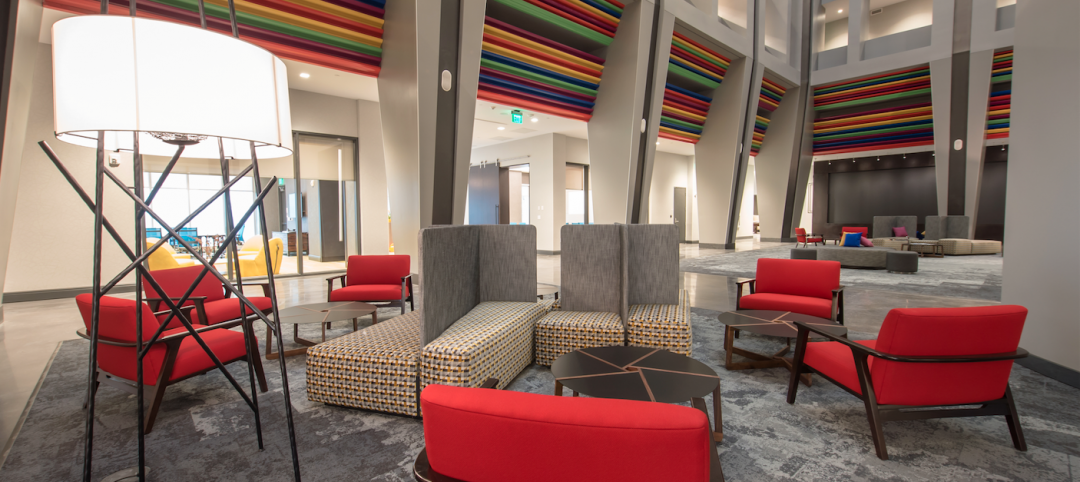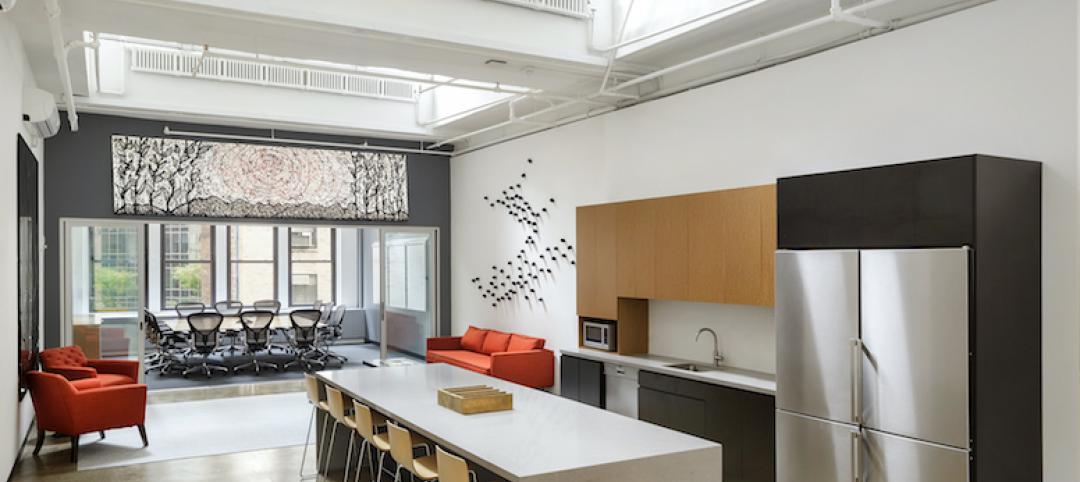Today, The Assembly is a state-of-the-art life sciences research and innovation facility. But the century-old building began as a Model-T assembly line and showroom for the Ford Motor Company in the Bloomfield neighborhood of Pittsburgh.
Developed by Wexford Science & Technology, The Assembly opened earlier this year and more recently achieved LEED Gold certification for its design, construction, and operations practices, which focused on improving environmental and human health. The Assembly is the University’s 18th project to earn a LEED certification since 2005, when it received its first LEED Gold certification for the McGowan Institute of Regenerative Medicine.
The newest LEED Gold certification aligns with the school’s and the community’s larger sustainability efforts, including the Plan for Pitt, the Pitt Sustainability Plan, and a commitment to third-party certified green buildings. The university intends to reach carbon neutrality both on- and off-campus by 2037.
Designed by ZGF and built by Turner Construction, The Assembly diverted nearly 90% of construction waste from the landfill. Of its renovation materials, 56% were regional and 32% recycled. Close to public transit, The Assembly provides bicycle storage and changing rooms, as well as 30 electric vehicle chargers.
The Assembly is part of a 355,000-sf life science redevelopment complex in the former Ford plant. The research taking place at The Assembly includes cancer biology and immunology, among other areas.
Constructed in 1915, the Ford Motor Company Assembly Plant housed Model-T production, showroom, and sales until 1932. As a dealership, it remained in business until 1953, then sat largely vacant. In 2018, the original building was named to the National Register of Historic Places, and the University of Pittsburgh and Wexford acquired the property and announced redevelopment plans.
On the Building Team:
Developer: Wexford Science & Technology
Capital partner: Ventas
Design architect and architect of record: ZGF Architects
MEP engineer: AEI
Structural engineer: Thornton Tomasetti
Construction: Turner Construction
Related Stories
Adaptive Reuse | Oct 22, 2020
A Los Angeles design firm reimagines urban workplaces, multifamily buildings, and warehouses
Omgivning conjures varieties of adaptive-reuse concepts.
Adaptive Reuse | Jul 29, 2020
Two Indianapolis schools find new digs in a long-dormant factory
Adaptive reuse preserved many of the building’s original features.
Coronavirus | May 18, 2020
Will empty hotels provide an answer for affordable housing shortage?
A Los Angeles-based startup sees the Midwest as most fertile for adaptive reuse.
Adaptive Reuse | Feb 25, 2020
Hastings Architecture creates its new HQ from a former Nashville Public Library building
The building was originally constructed in 1965.
Mixed-Use | Jul 18, 2019
POST Houston mixed-use development will include a five-acre “skylawn”
OMA is designing the project.
Multifamily Housing | Jun 17, 2019
Boston multifamily development combines a historic warehouse with a new, modern addition
The Architectural Team designed the project.
Adaptive Reuse | Jun 11, 2019
The power and possibility of adaptive reuse
Building reuse generally offers greater environmental savings than demolition or new construction.
Adaptive Reuse | Jul 9, 2018
Work, park, live: Inside Cincinnati’s parking garage turned lifestyle hotel
The Summit hotel and conference center is a converted parking garage that was once a factory.
Office Buildings | Jun 6, 2018
Final Cut: Jupiter Entertainment’s new production studio in New York combines office and editing spaces
The project team completed this full-floor renovation in four months.
Adaptive Reuse | Jun 4, 2018
Pop-up retail market on Chicago’s Randolph Street will be made of repurposed shipping containers
Related Midwest will open the market at 725 W. Randolph St. later this week.


